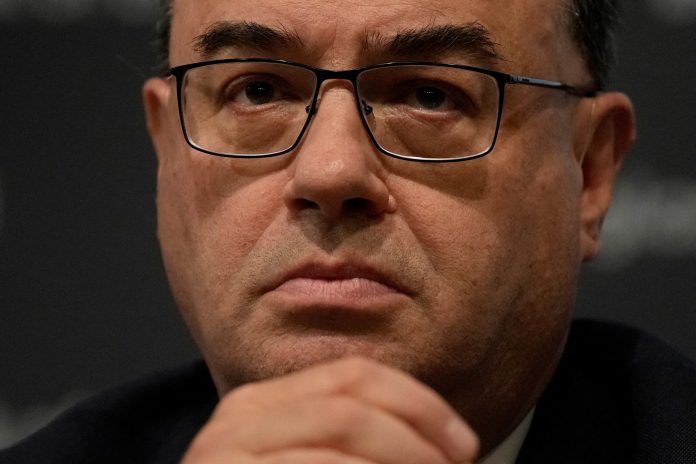The Bank of England (BoE) may lower interest rates if the labour market slows down, Bank Governor Andrew Bailey said on Monday.
Companies are “adjusting employment” in response to Chancellor Rachel Reeves’ decision to increase employers’ National Insurance contributions, the BoE governor said in an interview with The Times.
According to Mr. Bailey, companies are “also raising wages, which might have been lower had there not been a change in the social security system.” In an interview with the newspaper, the governor said that the British economy is growing more slowly than it could. He said this could create “room for manoeuvre” and reduce inflation, meaning that prices for goods will not rise as quickly as incomes in the future.
Bailey said he believed the base rate set by the BoE would be cut in the future after its June meeting.
New dynamics in the mortgage market
After a series of sharp increases in the base rate since the end of 2021, the BoE raised it to 5.25%, the highest level in 16 years. As a result, fixed-rate mortgages became unaffordable for millions of borrowers, leading to a noticeable slowdown in the housing market.
However, as early as 2025, major lenders — including HSBC, Barclays, Santander, Nationwide and Halifax — began to reduce rates on fixed-rate mortgage products by 0.2–0.5 percentage points. Some two- and five-year programmes are now available at rates below 4.5%, which is significantly lower than the peak levels of 2023 (over 6%).
The current bank rate of 4.25%, which affects all types of lending in the UK, including mortgages, will be reviewed again on August 7 by the Bank of England’s Monetary Policy Committee.
“I really believe we are moving down,” Bailey said in an interview with The Times. “But we continue to use the words “gradual” and “cautious” because… some people ask me, “Why are you cutting spending when inflation is above target?” he added.
More affordable mortgage products are already changing the behaviour of buyers and sellers. According to Rightmove’s June report, mortgage applications rose by 9% compared to the previous month, and property viewings rose by 12%.
The average house price across the country remains at around £286,000, but analysts expect prices to rise in the second half of the year if buyer activity continues to strengthen.
The issue of tax increases
Finance Minister Darren Jones said it was perfectly normal for companies to adjust their business plans due to tax increases. The BoE governor’s statement that lower interest rates and slower inflation are just around the corner came at a time when the UK government was faced with the need to raise living standards.
Reeves’ tax and budget plans are also constrained by the current cost of borrowing and lower growth forecasts. The Chancellor’s reserves have been partially depleted by the abolition of winter fuel payments and welfare reforms, as well as global shocks to the British economy.
Some Labour Party members, including former leader Neil Kinnock and former First Minister of Wales Baroness Eluned Morgan, are calling for a wealth tax to strengthen public finances.
On Sunday, Transport Minister Heidi Alexander said that such a tax had not been discussed “directly” when ministers held a retreat at the end of last week. However, in an interview with Sky News’ Sunday Morning with Trevor Phillips, she did not rule out the possibility of tax increases in the autumn budget, saying only that tax decisions would be made on the basis of “fairness.”
